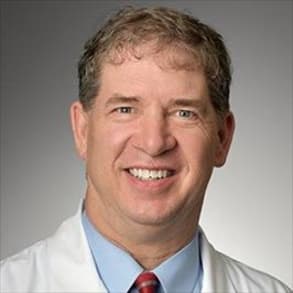Paul Stevenson, M.D., discusses his areas of focus, his approach to patient care, and how the field of obstetrics & gynecology is evolving.
My name is Dr Lindsay Stephenson. I work here at Sentara Admiral Medical Center associated with the practice named Sentara O. B. G. Y. N. Specialists as an O. B G Y N. I'm involved in women's care at uh many levels of of care starting from teenage years until uh late in life. What brought me to Elizabeth city in medicine is an interesting story, not like some other folks, I think. Um I grew up here in Elizabeth city and I went to University of north Carolina and studied music education. So I was a music educator in the public schools in Elizabeth City for a few years and then realized that uh some of my science background and desire to be in uh patient care in medicine would pulled me away. And so I went to medical school and uh studied or specialized in O. B. G. Y. N. Um and what brought me to a big uns particularly was that I really wanted to be a family practitioner, but I realized that um I really love delivering babies and I love surgery too. And I thought to myself that perhaps I could be a family practitioner for women essentially and be able to have those skills to be able to uh completely take care of women during the uh pregnancy birthing process and not be dependent on somebody else and also have the expertise to take care of all the needs they would have. So uh in my mind I'm uh have some specialty skills but at heart uh somebody who wants to take care of women in all facets of their life, much like a family practitioner would O. B. G. Y. N. Is because it's so multifaceted has just a lot of things that are going on right now in the world of prenatal care. Obstetrics, for example, we have the ability to do genetic screening and testing, like we've never done before. A recent technique called non invasive prenatal testing allows us to have more uh accuracy and screening for genetic diseases uh and doing it in a way that's not invasive in that we don't have to put uh a needle inside the uterus and put the baby in danger. Uh We're able to also identify more specific diseases. Uh for example, there's a technique that could identify a disease called tay Sachs disease and identify that even uh early in the pregnancy before you would know. Also, we've recently had a patient that had a disease called osteogenesis imperfecta identified. And these are just a really fantastic things to know so that the patient can get ready for those special needs that that patient that baby might have.
Related Presenters
